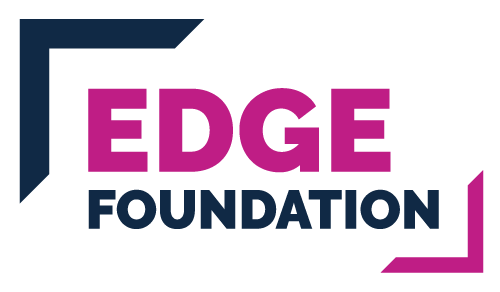
This year will be a year for change. Half the world’s population will have the opportunity to cast their vote, as some 65 countries hold elections.
A (perhaps) lesser-known fact is that 2024 also marks the 20th anniversary of the Edge Foundation – which provides an opportunity to reflect on the progress in the education and skills landscape, as we hear messages of hope from politicians vying for your vote.
Set up to challenge the perceptions around technical and vocational education that entrench social divides and stagnate growth, Edge has spent the past two decades promoting the value of an education system more in touch with the demands of life and the modern working world.
We have come a long way.
Twenty years ago, we spoke in very old-fashioned terms about our ambitions for a world-class technical education system in Britain, mainly focusing on manual professions: engineering, craftsmanship and manufacturing. We sought “parity of esteem” between what some called “academic” and vocational pathways in an effort to legitimise their value among the middle classes. In parallel, significant work with industry was undertaken to transform the training offer for employers, raise standards and improve outcomes in vocational courses and apprenticeships.
Today, a broad swathe of public opinion is overwhelmingly supportive of our mission: 44 per cent believe apprenticeships offer young people better job prospects and preparation for the workplace than university. Nearly three quarters (73 per cent) report they would be happy if a family member decided to take on an apprenticeship, compared with just 17 per cent who would prefer them to go to university.
Confidence in vocational qualifications has grown as the quality of courses has improved. And the focus isn’t just on manual professions and traditional industries anymore. Legal apprentices, for example, outperformed other non-apprenticeship candidates seeking to qualify as solicitors in the new Solicitors Qualifying Examination (SQE). Apprentice pass rates were 26 per cent higher on average than the overall pass rate in the exam’s first year.
Businesses report they have changed their workforce strategies and hiring processes – moving away from an over-reliance on academic performance in GCSE and A-levels in favour of other skill sets and attributes. In turn, they are reaping the financial and wider benefits of greater diversity in their workforce. Companies like Amazon, Microsoft and PWC offer apprenticeship courses in data analysis, network engineering, and consulting, with competitive salaries, and rather than selling the idea of vocational training, we now worry about a “middle-class grab” of apprenticeships. So: can we sit back and relax now that our work here is done? Not quite.
There is still a long way to go to ensure that vocational education powers productivity and growth. In recent years, there has been a groundswell from just about every corner of society echoing Edge’s position that we need to breathe new life into our sluggish education system. We want to see knowledge-rich learning sit alongside the teaching of skills needed for life and work. From front-line staff working in schools, colleges and universities, to parents and businesses, the arts, sciences, and media – major reports from the Times’ Education Commission and the House of Lords Education for 11-16 Year Olds Committee, respectively, as well as other think tanks, have shifted the dial.
Changes in the labour market will increasingly require the education system to provide young people with higher-level communication, collaboration, creative problem-solving and comprehension skills. And families recognise this too –
a recent report from the Laidlaw Foundation found that parents are not satisfied with a narrow academic focus, but want to see more emphasis on well-roundedness (82 per cent), preparation for future employment (77 per cent) and promoting success beyond academic attainment (72 per cent).
It is enormously encouraging, in the year of a general election, to see every major party scrambling to pitch their plans to revitalise education and skills training, and pledge their support for the institutions, such as further education colleges, at the heart of delivery.
While it’s not usually a top-tier issue for voters, we’re hearing promises from the shadow education secretary Bridget Phillipson to review the curriculum, introduce real-world maths and more oracy, in addition to seeing direction from No 10 itself to end the separation of academic and technical education post-16 through a new advanced British standard. At last, there is widespread acceptance that essential and technical skills are not for the less “academically” able, but that every young person will need them if we are to address our skills deficits and boost our economic competitiveness as a nation.
After the next general election, many people will be hoping for a quieter period in British politics. But we can’t afford for these pledges on education and skills to be all talk, or a short-term bid to appease public opinion and win votes. Promises of new quangos, skills strategies and reviews can seem like a helpful way to plug a lively debate at a time of fiscal constraint, but any incoming government must see through its promises when it comes to the next era of education and skills reform.
Low public trust in politicians, escalating skills shortages (73 per cent of UK organisations are currently experiencing skills gaps) and the challenging state of the economy (to put it gently) make these questions of education too costly to ignore. But if this is what can be achieved in one 20-year period, who knows where we’ll go in the next. Whoever comes to power at the next election, we’ll be continuing to push both the importance of this agenda and hold the occupant of No 10 to account, whether on issues like the advanced British standard, a proposed growth and skills levy, or real-world maths. From swimming against the tide to riding the wave, at Edge we look forward to turning this talk into action.
For more information visit www.edge.co.uk
This article first appeared in our print Spotlight report on Skills, published on 2 February 2024.



